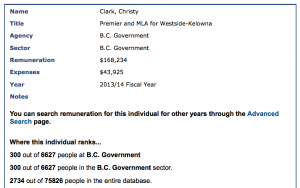Legislation
Bill 24: Profits of Criminal Notoriety Act
Today in the legislature we debated Bill 24 – 2016: Profits of Criminal Notoriety Act at second reading. As I noted earlier, this Bill mirrors my private members Bill introduced on February 25 entitled Bill M204 — 2016: Profits of Criminal Notoriety Act. This represents the third of my private members bills that has been adopted by government this session. Below are the text and video of my speech supporting this bill.
Text of Speech
Near the end of February, British Columbia faced an issue similar to what other provinces have faced in the past. Robert Pickton, one of Canada’s most prolific serial killers, published a book entitled Pickton: In His Own Words.
This book was available on Amazon for a short while before it was taken down. As one expected, the situation outraged many people across the province and brought to light a gap in our current legal system. Prior to the introduction of this legislation before us, we had nothing in our province that prevented convicted criminals from financially profiting through the recounting of their crimes. That’s why my office and I delved deeper into this issue and identified a number of provinces that had already introduced legislation to address this issue.
On February 25, 2016, I introduced Bill M204 — Profits of Criminal Notoriety Act, 2016, which was based on similar legislation in Nova Scotia. I am strongly in support of the intentions of this legislation and look forward to its passage in the Legislature.
However, please let me take a few minutes to recount the other side of what we uncovered as we looked into this issue. It’s my hope that by doing so, I can contribute positively to making a strong piece of legislation that is applied appropriately to specific situations, such as the case with Robert Pickton.
Now, Ontario was the first to enact legislation that prevented criminals from profiting from the notoriety of their crimes through recounting them, typically through publishing books that retold their crimes. Ontario passed this legislation in 2002. Manitoba followed in 2004, Alberta in 2005, Nova Scotia in 2006 and Saskatchewan in 2009.
I think it’s important to note that, as far as I can tell, Canada’s Parliament has refused to bring in similar legislation for fears of impairment of the free speech of Canadians. This concern arose in 1996 when the Senate rejected Bill C-205, which would see amendments made to the Copyright Act and the Criminal Code in order to create a federal law. While the bill passed through the House of Commons, the Senate received legal opinions that cautioned that the legislation would cause an infringement to their freedom of expression guarantee in the Charter of Rights and Freedoms.
It is here that I’d like to highlight the work of Joanne Colledge, executive officer to the Chief Justice of Saskatchewan and the provincial judicial council, and John Whyte, an emeritus professor in the Department of Politics and International Studies at the University of Regina. Their paper entitled Capturing Proceeds from Criminal Notoriety: A Case Study was published in 2012 in issue 2 of volume 17 of the journal Review of Constitutional Studies, pages 41 to 72. You can get the link on my website after today.
This paper provides an excellent overview of one of the most important debates we must undertake in advancing this legislation. It further shines a light on a potential pitfall for governments who seek to take this law too far or to prosecute a specific individual instead of an issue of public policy. The work by Colledge and Whyte explores the series of events that led to Saskatchewan’s bill being introduced in 2009 and their concerns that it represented a possible Charter violation. This was due to the way in which the bill seemed to target an individual specifically rather than a public policy in general.
The individual in question, Mr. Colin Thatcher, was in the press at the time in discussions about his attempt to publish a book recounting some elements surrounding his arrest and conviction. Please let me quote directly from the work of Colledge and Whyte:
“While certainly not unique to Saskatchewan, the enactment of the Notoriety Act caused concern precisely because it was done so quickly, without due consideration for potential constitutional considerations; because it was targeted specifically to ensure that Thatcher’s book would be captured by the acts provision, including expressly making the Notoriety Act’s application retro-active; and because of all this occurred before anyone in the government or elsewhere had seen the book’s content. That the Notoriety Act may have been targeted to capture Thatcher’s book seems especially significant since, written into the Notoriety Act are two sections that were not applied by the Government. These two sections allow exceptions to the Act’s application when the content falls within certain statutory definitions.
What ultimately came to issue here was the language used by the Saskatchewan legislature. They created: “definitional layers and an indeterminate scope that served to frustrate a clear understanding of which writings will actually fall within the Notoriety Act’s expropriating provisions.” That was a direct quote from the same paper.
Now I know that the legislature will have ample opportunity to ensure that the language chosen in the government’s bill, the Profits of Criminal Notoriety Act, does not create a similar issue. However, I felt it was important to take an opportunity at second reading to ensure that the principle in question was expressed.
This bill and the similar legislation I introduced followed a specific case where an individual whose actions horrified British Columbians attempted to publish an account of these crimes for profit. While I’m convinced that we must address a glaring legislative gap, and I further stand behind the principle that this legislation advances, we must ensure that we are setting up a legislative framework that works to create a fundamental tenet: those who commit criminal acts should not profit from the direct retelling of their crimes. We must ensure that this is restricted to instances where the purpose of the individual was exactly this.
The concerns expressed in the Colledge and Whyte paper are that the individual in Saskatchewan, Colin Thatcher, who I mentioned earlier, was not attempting to publish a recounting of his crimes, but rather “to examine the police investigation and prosecution, and to analyze critically both the evidence and the theory on which his conviction was based.”
The central tenet expressed in their critique seems well founded. We must not allow this legislation to become a tool that represses legitimate forms of free speech. Whether or not a government likes something that is published should not be the determining factor, rather whether the text meets the specific requirements of the legislation before us should be.
This is why the words matter. Words matter. They must be able to diverge unpopular opinions from those where an individual seeks to recount their crimes for profit.
I look forward to exploring this in more detail when the minister brings this bill to committee stage and hope to get his perspective on where, in this balancing act, this particular piece of legislation lands. I commend the government for bringing the legislation forward. It’s timely, needed, and I thank you for your attention.
Video of Speech
2nd Reading of Bill 23: Sexual Violence and Misconduct Policy Act
Today in the Legislature was second reading of Bill 23: Sexual Violence and Misconduct Policy Act, 2016. As promised by the Premier, this legislation was introduced by government in response to my private members Bill M205: Post-Secondary Sexual Violence Policies Act.
This bill, based on similar legislation in Ontario, was designed to address the pervasive occurrence of sexualized violence plaguing universities, colleges and other post-secondary institutions in British Columbia. If enacted, it would create a legal responsibility for them to develop and maintain policies that would work to prevent the occurrences of sexual violence and provide support for survivors. The act would allow university- and college-specific policies to be developed that would meet the needs of students, including education and protection, while working to create a safe environment for all students to come forward to report a sexual assault.
Below are the text and video of my second reading speech.
Text of Speech
It gives me great pleasure to rise and speak in support of Bill 23, the Sexual Violence and Misconduct Policy Act. As we know, this bill arose in response to an earlier private member’s bill which was submitted to this House. It represents the cumulative input from numerous stakeholders across the province and is ultimately based on similar legislation that was tabled and passed in Ontario, catered slightly to the needs of British Columbia post-secondary institutions.
There were some changes in this act as brought forward, as mentioned by the official opposition, from the earlier version, including, for example, the focus on public post-secondary institutions, no longer including some of the private institutions. I have had discussions with the minister about the intention of this, and I’m sure we’ll explore that further as the minister is posed questions during committee stage.
There’s also, of course, the issue of gender identity and gender expression which, I have argued quite strongly, is important given that the transgender community experience sexualized violence and misconduct at even a greater extent than do women in our society. So we need this to be inclusive. But again, government will respond at the committee stage with reasons and rationale for the language that we have here.
In addition, there has been a comment made that the word “sexual violence,” under the definitions, was changed to “sexual misconduct.” In the original version, it had “sexual violence.” I recognize that for some people that might be troubling. What, to me, was very important is that the words “sexual violence” still appear in the title. Under the definitions, it is a definition meaning sexual misconduct.
I recognize that for many…. Including the original version I put in, sexual violence was used there. However, because it is a definition, what it is saying is anything within the quotes, wherever it follows in the legislation. Whether it be the words “sexual violence” or “sexual misconduct,” it doesn’t matter. What matters is that wherever you see those two words, it is defined by sexual assault, sexual exploitation, sexual harassment, stalking, indecent exposure, voyeurism, etc.
This bill was the culmination of many, many hours of engagement with students, faculty associations, support services for survivors, and others. We had a town hall on this bill, just last week, attended by quite a large number of University of Victoria students. It was put on in collaboration with the University of Victoria Students Society. It was also attended by representatives from a number of agencies in and around Victoria. I will say that the overwhelming majority — in fact, in its entirety — there very strong support within the student body for the work that’s represented in this bill.
Now, what is it that this bill is trying to address? Let me see if I can provide some very illustrative examples of the type of things that occur.
There was a very unfortunate, in my view, editorial in the Times Colonist, which missed the point of this bill. In the Times Colonist recently, they talked about the fact that this should simply be a matter to be dealt with by the police. Of course we recognize that when criminal charges are to be laid, the police must be involved. Universities, post-secondary institutions, colleges, do not — do not — file charges and take people to court in a criminal sense. That is the role of the police.
However, that is not the issue. The issue is the systemic prevalence of sexualized violence on university and post-secondary campuses. I’m going to give you a few examples, but it comes to a much broader issue. While some might say that it’s always been around, it has always been around.
Fundamentally, we have in our society an entire generation of youth who’ve been brought up in the Internet age, where the accidental type of typing in a woman’s name can lead you to websites that put forward images of sexualized violence at the click of a finger, the push of a button. A whole generation of youth are exposed to graphic images, such that I begin to worry whether or not many within our society understand what a healthy relationship is. A healthy relationship is often — more often than not, certainly most often than not — expressed in some of the imagery that one can see on the internet so easily, and so difficult to control.
This is not something that existed during my time as a student university or as a grad student. Of course there has been and continues to be sexualized violence on campuses, both past and present. While our goal is to eliminate it in the future, we will do our best, but there will always be cases. No case is acceptable, and we must work towards zero cases.
However, there is a difference. The exposure to the Internet and exposure to the type of behavior that is highly graphic, highly offensive to many — to most, to all — that in more cases than not demonstrates a very unhealthy relationship between a man and a woman or between two people of the same gender.
It is unhealthy, yet we have a generation of youth exposed to this, entering to post-secondary institutions where, for the first time, they are moving away from home. They may be living in close quarters with others. Where for many, the concept of consent has never been discussed.
I’ll come to that later, when we talk about the movement of policies like this into the K-to-12 sector and the work that we’ve been doing to try to engage students in that regard. But let me give a couple specific examples, without quoting universities, without quoting colleges. I will say that in many cases, what I’m going to say as an example happened at multiple universities.
Here’s one. Let’s suppose, hypothetically…. Well, this is a true case, so we don’t need to suppose hypothetically. In at least two universities, there are cases where a very serious sexual assault occurred in student residences. Now, the difficulty with that is that student residences are places where people have to live beside each other.
If a serious sexual assault occurs in a residence, obviously, you would like to get the people away from each other. In at least two cases, that didn’t happen. The survivor had to live in the same dormitory as the perpetrator of the assault because of the inaction of an institution. That’s unacceptable. That’s unacceptable that an institution would cave to the legal threat of the perpetrator that they would sue if they were kicked out of residence. There needs to be policy that allows institutions to do that so that they’re not afraid to put the survivor first and to deal with the matters that are appropriate.
Here’s another story, a story that occurred in many places. This is a story about a very bold survivor named Jean Strong at Thompson Rivers University, who was quite forthcoming with us, participated in our panel last week and who went to Thompson Rivers University. Jean Strong was sexually assaulted twice in one term on campus. The psychological effects were profound, yet this student had to be on campus and attend the same classes as the perpetrators.
When going to the administration, she was told that perhaps the institution was not the best for her and that they would help her fill out forms to apply to another university in British Columbia and elsewhere in Canada. Now, that’s clearly not an acceptable response. And when the bold survivor, Jean Strong, told her story, what happened? More students came out and expressed their concern to Jean, who became like a flag-bearer for this issue on the campus.
I’ll give you another story. This is a story about Capilano University and a professor who, in their class, discussed the introduction of this bill. The reason why the professor wanted to discuss the introduction of this bill is because the official reporting stats from Capilano were that there were zero cases of sexualized violence on the campus. When the professor raised this to the class and discussed this bill to talk about the issue, one young woman in the class ran outside of the classroom, quite upset. And why was that the case? Well, as you might imagine, there were not zero cases of sexualized violence that occurred in the Capilano University environment.
I could go on with other examples — cases where people were told that in fact because they didn’t say no, then, really, the university or institution cannot do anything. It’s a fundamental misunderstanding of what consent means. Consent does not mean saying no or not saying no. Consent means specifically saying yes, which seems to be missed in the several cases that we’ve heard.
I’ve had cases come to me of international students who felt lost that the institutions had not looked after them, and they don’t know where to go. They don’t know what the services are, and they were hoping to get some support — and in some cases, didn’t. The litany of stories that we got from across British Columbia was overwhelming. And it was not only across British Columbia; they started coming in from across Canada. This is an issue that’s not exclusive to one university, not exclusive to one college. It’s pervasive across North America, and it says that there is something very wrong in our society — something very wrong when this sort of behavior can actually go on, on campuses and a lid be put over it.
One of the themes that came up at the town hall we had last week — it was actually quite an interesting theme — was that there was a concern expressed by more than one individual that the growth of the concern on campuses about the suppression, the perceived suppression, of actions on sexualized policy came lock in step with the corporatization of some of our university and post-secondary institutions — perhaps less of an issue to some of the smaller institutions, but more an issue to some of the bigger ones. Universities must and need to be perceived as safe places for students, not only local but across the world — safe places for those students to learn, to innovate, to be creative and to contribute to research and understanding of everything around us.
Universities, colleges and post-secondary institutions spend a lot of time trying to brand their university, to have a corporate brand on it. Now, the last thing you want is a corporate brand that actually gets undermined by the kind of outpouring of concern that we’ve seen, for example, happening on some of our university campuses of late. We have had examples from UBC. We’ve had examples from Thompson Rivers, which I mentioned, and elsewhere too. This is not good for the corporate branding of an institution.
There’s an inherent, built-in wish — whether acted upon or otherwise — that these issues not blow up, because it doesn’t do a good thing for one’s branding. Hence, some of the concern that in fact a lot of the concerns are being brushed under the table on our university campuses.
My hope and goal is that this will actually go beyond university campuses. As I’ve alluded to earlier, some of the problems are that university campuses…. Post-secondary institution campuses are really the first place where young people today move away from home, have constraints and barriers removed from them and are living away, perhaps in close quarters in dorms. They’ve grown up in an age of unrestricted access, on the Internet, to videos, to images that actually portray relationships in very unhealthy ways. Many may not understand what is or is not a healthy relationship. So we need to get education happening in the K to 12 as well.
In fact, I was in a Vic High class two weeks ago, with a teacher there. There’s actually a project that was initiated by a group called B.C. Speaks, which is a citizens’ assembly pilot project. What they did is they went and worked with Jim Pine, an outstanding socials teacher at Vic High, who’s in their 12 grade social justice class. They picked up the issue of sexualized violence, and they wanted to understand how the curriculum in British Columbia could be modified or changed to actually incorporate this in the K-to-12 sector.
These are the key points that this amazing class of individuals came up with. They recognized that key issues, like incorporating consent in the curriculum, are important. The term “consent” does not appear anywhere in the new sexual education curriculum that’s being discussed now. They want to emphasize respect. Sexual education is more than learning about body parts and sexual intercourse. It’s about learning to be a good person and to treat others with respect.
They want more time spent, to increase the time spent on sexual education. Eighty minutes per grade is too small an amount to deal with all complexities of this topic. Many questions are left unanswered, they say, or are informed by poor sources, such as the Internet pornography that I have referred to earlier. They’re hoping to see sex education curriculum for grades 11 and 12, as there is none in the grade 11 and 12 curriculum. They’re hoping to see a new course on human well-being being introduced. The course would deal with sexual, emotional, physical and mental well-being. It would be mandatory, they would argue.
Now, I have some sympathy for this. All students are taking a course called “Grad Transitions,” and I can think of no better course to actually embed the important issue of what is or is not a healthy relationship and what is or is not consent than in a course that all students must take.
They point out that there’s inadequate sex ed in grade levels, which leads to poor behaviour at universities and beyond, something that I have great sympathy for. They went so far, as I alluded to, as to actually develop some suggested curricula. We are in good hands when the next generation recognizes that there is an issue in our society for which solutions exist and they’re willing to stand up and be part of forming those solutions and disseminating them through others.
Let’s come back to the bill. We sought, in the earlier version that I introduced as a private member’s bill, input from every university student society in the province as well as input from support services for survivors, and we got an enormous number of responses — let me say, overwhelming support for this bill. Without question, there was no person, no group that responded that we don’t need this bill.
There were some institutions that would argue that they’re further along the advancement towards the development of such policies and look forward to tweaking their policies to bring them in line with others. And there were some who felt that there was a desperate urge and need for policies to be brought in.
If we go to BCIT, for example, we had a number of comments from there. They actually have a student code of conduct, non-academic conduct, which states the following.
“BCIT’s Student Code of Conduct applies to conduct that occurs on BCIT premises, at BCIT-sponsored activities and to off-campus conduct that has the potential to adversely affect the institute, community and/or the pursuit of BCIT’s objectives. The policy is applicable to students as well as other individuals while they are on BCIT premises or in attendance at BCIT-authorized or BCIT-sponsored functions.“
Now, this is important, because there are two things that they start to talk about in this code of conduct. We’re not specifically talking about sexualized violence, but they actually raise the concept of a code of conduct, and in their comments, they raise the concern that we need to ensure that more people are included other than just university students, a point that was also brought forward by the University of British Columbia. It is talking now about university faculty-student or staff-to-staff or staff-to-faculty or staff-to-student relationships and the role of sexualized violence in poisoning some of these relationships on campuses across the province.
With that said, one of the good things here with the legislation is it does allow for this. It doesn’t prescribe only students. In fact, it prescribes some language called “prescribed persons.” That is, regulations will allow for others to be included in this legislation, such as faculty, such as staff, bringing this concept broader, integrating it fully within the university community.
The code of conduct within the BCIT also states:
“Each student will be responsible and accountable for his or her conduct from the time of application for admission or enrolment through the actual awarding of a credential. This includes but is not limited to conduct that may occur in the following times and situations: during the academic year; before classes begin or after classes end; during periods between terms of actual enrolment; during periods when the student may be completing a practicum or work term for an employer or other organization, either for compensation or not, when required by a program of study at BCIT; during a time when a student withdraws from the institution while a disciplinary matter is pending; conduct that is not discovered until after a credential has been awarded.“
This is a rather broad student code of conduct that exists at BCIT in terms of the time at which it applies. This is one of the things that the BCIT folk we talked to suggested was important, recognizing in the development of policies that the time at which these policies applied must be broad, and they’ve offered some suggestions here as well. We had a number of comments, as I mentioned, from BCIT.
We had extensive feedback from a nine-member panel, a multi-stakeholder group called the sexual assault prevention and response working group. They were, overall, quite supportive of the legislation. They had a couple of things that they thought might need some clarity. They thought that more clarity was needed regarding the scope of application of the legislation.
As I’ve discussed earlier, there was some concern about the survey. That is, they had a number of concerns related to this. They were concerned when it comes to collecting and reporting data. They were concerned about lumping together incidents of sexualized violence that, broadly defined, could mischaracterize the nature and scope of the issues, as well as potentially trivialize the seriousness of the more serious.
In essence, what they were saying is that the data needs to be quality data. We don’t want to have lots of reporting data that inflate statistics or multiply report the same statistic or diminish the importance of more serious cases over some cases that may be slightly less serious. They outlined in their detailed and thorough response to us quite a number of recommendations with respect to that.
Of course, the concerns about confidentiality were first and foremost — we do have the privacy legislation here in British Columbia. There’s concern expressed, by numbers, and I’m sure the government would agree with this — that the concern for the privacy of the survivor and also the alleged perpetrator be protected at all times during this process.
We had extensive feedback from UBC, talking about the requirement for policy, specifically talking about the needs for staff and faculty to be involved, the need to have very broad consultation and to increase the consultation beyond just students, to include First Nations students, as well as transgender students and people representing a diversity of our society.
This is very solid advice that I think we should act upon and that I think is the intent of this legislation. Most university campuses attempt to be inclusive in their consultative process. What the UBC group that we talked about there were hoping to ensure is that this is actually part of the intent of the legislation and be made aware. These are the things we’ll explore during committee stage.
We had some comments from, as I mentioned, survivors services. We had some comments from the Canadian Federation of Students, from an anti-violence project, on one campus, and from the Native Students Union at the University of Victoria. Again, this is one of a unique, rather large group at University of Victoria, the student union there, who were concerned about the treatment of First Nations and the means and ways the process includes them, and the fact that — they would argue, then, and the evidence is borne out — there is an increased risk of sexualized violence amongst First Nations students.
We had, again, many, many suggested amendments. We had comments from staff. We had the Capilano Faculty Association formally pass a resolution supporting the private member’s bill. I won’t tire Hansard staff by listing all the multitude of people that we were discussing with and we continue to discuss with.
There were some more concerns out of UBC. This was important. Not concerns we received from consultation with people from the University of British Columbia. There was concern that a problem that needs to be clearly identified is that the present legislation has no requirements for universities to acknowledge their own liability. One of the things that’s important about this legislation is that the sheer fact it exists means that there will have to be an education component.
One of the ways that universities and colleges can deal with ensuring that people understand the existence of these policies is to go to their orientation weeks. Every new student who is going to these new post-secondary institutions typically participates in orientation weeks, and it is in the orientation weeks that the education component of the introduction of this bill could start to talk about the issue of what consent is.
Consent is not saying: “Oh, the person didn’t say no. Therefore, I have consent.” Consent is about specific statement of yes. Consent is not about not saying no; it’s about saying yes. We need talk about what a healthy relationship is, talk about what is expected or not expected behavior in a dormitory on campus. These types of things need to be and will be included as various institutions across British Columbia move forward with the development of their policies.
Another problem that has arisen was the following rights for individual students should be required in the legislation. Now, some of these are implicit in the actual existence of privacy laws within B.C., but the specific ones that they talk about here are explicit steps to ensure an individual’s right to privacy, due process, equally of both accused and victim. And the prohibition of silencing. These I think are key points that, again, we can explore as we discuss the bill further at committee stage.
Again, another problem. This is with respect to section 5, regarding the survey. This is recent feedback we have got not only on the government’s bill but also on the prior version of that via the private member’s bill.
It said: “As written, this introduces political decision-making, the infrequent discretion of the Minister of Education, into what should be an annual fact-investigation process which allows standardized comparison against all institutions of higher learning in British Columbia.” It’s an important point. I’d be delighted to share some of this feedback with the minister or at committee stage where we can actually flesh out where these concerns are coming from.
That’s not to say that this bill is not supported. It was wholeheartedly supported. But it’s important that we reflect upon the various comments and concerns that were raised as we move forward in the development of the required policies.
Another good point that was raised, coming out of the UBC cases that we were talking about, is that the legislation does not require institutions to warn about ongoing possible threats; regularly disclose the number of expelled students, fired employees, and ongoing investigations; or specifically collecting and publishing statistics about incidents.
The issue of ongoing threats is an important one. There have been documented cases, high-profile cases, in British Columbia where known perpetrators — known to institutions — have gone on and subsequently been involved with sexualized violence with other survivors on campuses. The institution knew of existing examples. This is important — that there be some requirement for institutions to warn about possible threats within their community.
There are other issues there were raised here with respect to the employee-student relationships. A very important one, of course, is that in an employee-student relationship, there is a power over. That can be abused. Recommendations we received in that area were quite common.
We have another series of 44 recommendations that actually came from some legal advice we received that would actually also be very helpful in the formulation of policies across campuses that we will make available subject to approval from the people who sent it to us.
There is great interest in this bill across British Columbia. There is great desire for this bill to pass across British Columbia. This bill, like every bill, will not be perfect. It will need to be reviewed and evolved as time goes on, as society changes.
It does point out the need, from the feedback we got, for complementary legislation to start to emerge for the K-to-12 sector, particularly in dealing with the fact that students are now graduating in an age where times have changed, given the preponderance of availability of the Internet and all the good and bad that happens with that.
With that, I thoroughly look forward to discussing this bill further at committee stage. I’m sincerely grateful to the many survivors across this province, to the student associations across this province, to the faculty associations across this province, to the hard-working people at the survivor centres across this province and to the Minister of Advanced Education and the government for their work towards making this act a reality.
It came. It was a lot of hard work — a lot of people involved. But first and foremost, we must thank those who’ve had bold courage to actually stand up and speak out.
Video of Speech
Constituency Report – April 2016
Constituency Report is a public service that Shaw TV graciously offers MLAs. This month’s video is provided below.
Judy Fainstein and I once more tried something different. The first segment follows the usual discussion of legislative issues relevant to Oak Bay-Gordon Head and British Columbia in general. In the second segment, I introduce Isobel Mackenzie, British Columbia’s Seniors Advocate. We discuss the role and services offered by the Office of the Seniors Advocate British Columbia.
As always, I’d be interested in your feedback on this constituency report.
Constituency Report
On corporate and union donations, and party leader stipends
Introduction
The subject as to whether or not corporate and union donations to political parties should be allowed in British Columbia has been a matter of debate for quite some time. It resurfaced in the headlines over the last few days.
On April 25th the Dogwood Initiative released polling results showing that “86% of British Columbians would support a ban on corporate and union donations before the next election“.
Two days later Gary Mason wrote a story in the Globe and Mail stating:
“The Globe and Mail has learned that Ms. Clark is given between $30,000 and $50,000 a year from the BC Liberal Party for work she does for it throughout the year, including attending fundraising events. “
in the same piece, the Leader of the Official Opposition is quote as saying he’s received reimbursement for a “couple of suits” totaling about $5000 since becoming Leader in 2014.
In a second piece, published later that day after the BC NDP raised the issue in Question period, Gary Mason piled on the evidence as to why he believes party stipends to premiers shouldn’t be allowed. He noted that BC is one of only two provinces in Canada where a provincial premier gets a stipend from the political party (Saskatchewan being the other). And he suggested that since one of the duties of a provincial party leader is to fundraise, a perception could be left that there is a potential conflict.
The Vancouver Sun also picked up the story as did the Tyee a day later. Both these articles included quotes from a letter that MLA David Eby submitted to the conflict or interest commissioner.
Union and Corporate Donations in BC Politics
The BC Green Party, the BC NDP and Independent Member Vicki Huntington (Delta South) have long called for a ban on union and corporations in BC politics. As I’ve noted in numerous speeches in the legislature, unions don’t vote; corporations don’t vote; only people vote. BC is the wild west in terms of its lax rules for political donations. Any person, union or corporation anywhere in the world can donate any amount of money they want to any party any time they want! It leaves one wondering whose interests are being represented.
Let’s take a quick look at some data from the recent financial reporting to Elections BC.
 The BC NDP 2015 Financial Report notes that the BC Government & Service Employees Union donated $92,679.42 to the BC NDP. The United Steelworks Union donated $66,325 to the BC NDP during this period.
The BC NDP 2015 Financial Report notes that the BC Government & Service Employees Union donated $92,679.42 to the BC NDP. The United Steelworks Union donated $66,325 to the BC NDP during this period.
The BC Liberal 2015 Financial Report notes that The Independent Contractors and Businesses Association of BC donated $47,000 to the BC Liberals. KGHM Ajax Mining Inc. donated $29,000, and the New Car Dealers Association of BC also donated $62,225 to the BC Liberals.
The issue of union and corporate donations raises other potentially troubling concerns. A corporation is governed by a board that ultimately serves at the will of the corporation’s shareholders. As such, donations made by corporations are being done so whether or not a shareholder approves of such donations. In essence, shareholders are having their money used to support a political party even if they don’t support that political party. The same is true for union donations. Union members have dues taken from their paycheques to fund the operations of their unions. There may be members of a union who support a party other than the party that the union that represents them is donating to. In both cases, a chosen few individuals are making the decision as to which political party their shareholders/members will support financially.
The Case of Mount Polley
From January 1, 2012 until May 13, 2013 (the date of the last provincial election), the United Steelworkers Union and several of its Locals donated a total of $636,484.34 to the BC NDP. During the same time, Imperial Metals Ltd donated a total of $24,110 to the BC Liberals. Mount Polley Mining Corporation also donated $45,720 to the BC Liberals.
 After the tailings pond breach at the Mount Polley mine site, there were a number of newspaper stories pointing out that Imperial Metals, its controlling shareholder, and Mount Polley were all major donors to the BC Liberal Party (see for example a Vancouver Observer article). Imperial Metals was a very minor donor to the BC NDP as well. But as I indicated above, the BC NDP also received substantial donations from the United Steelworkers Union, the union that represents workers at the Mount Polley mine. In fact, Stephen Hunt, USW District 3 (Western Canada) Director, specifically called for USW members to support the BC NDP in the May 2013 election.
After the tailings pond breach at the Mount Polley mine site, there were a number of newspaper stories pointing out that Imperial Metals, its controlling shareholder, and Mount Polley were all major donors to the BC Liberal Party (see for example a Vancouver Observer article). Imperial Metals was a very minor donor to the BC NDP as well. But as I indicated above, the BC NDP also received substantial donations from the United Steelworkers Union, the union that represents workers at the Mount Polley mine. In fact, Stephen Hunt, USW District 3 (Western Canada) Director, specifically called for USW members to support the BC NDP in the May 2013 election.
The purpose of me highlighting the Mount Polley situation is to detail a very real example of why we need to take big union and big corporate money out of BC politics as we have done federally. Government is elected by the people to serve the people of British Columbia. In the case of the Mount Polley incident, the government and the official opposition had to make some very difficult decisions. What, if any, penalties should be implemented? When should the mine be reopened? How should it be monitored? While I am confident that both the government and the official opposition put the best interests of people first and foremost in this case, there will always be those who will question any resulting decision because of the perception that arises when union and corporate money is donated to political parties.
Public Sector Salaries in BC
The Vancouver Sun regularly publishes public sector salaries so its relatively straightforward to track what public sector employers are earning. Below I reproduce the most recently available entries from the 2013/2014 fiscal year for both the Premier (Christy Clark) as well as the Leader of the Official Opposition at the time (Adrian Dix). As you can see from the link images below, Christy Clark’s salary ranked 300th out of 6,627 people within the B.C. Government category; overall she was the 2734th out of 75,826 listed in the database. Adrian Dix’s salary ranked 695th out of 6,627 people with in the B.C. Government category; overall he was 5,358th out of 75,826 listed in the database.
2013/2014 salary for Premier (left) and leader of the opposition (right).
John Horgan took over as leader of the BC NDP in 2014. Publicly available data has yet to make it onto the Vancouver Sun site since Mr. Horgan took office. Nevertheless, the BC Legislature is transparent with respect to MLA salaries.
As of April 1, 2015, an MLA in British Columbia earns $102,878.00. This is the salary I earned as an MLA during the 2015/16 fiscal year. The Premier gets a 90% additional salary increase from this base amount and so was paid $195,468.20 during that time. Her Ministers, the Speaker as well as the leader of the official opposition (John Horgan) receive a 50% additional salary. As such, these elected officials all received $154,317 during the 2015/16 fiscal year.
Despite the fact that I am the leader of the BC Green Party, I do not receive an additional salary from the BC legislature. This is because in order for the BC Green Party to have official party status, we would need four elected members in the legislature. This didn’t stop the New Brunswick and Prince Edward Island legislatures from granting official party status to the New Brunswick and Prince Edward Island Green parties despite that fact that they too had only one MLA elected. Had the BC government seen it fit to grant the BC Greens official party status, I would have a 25% additional salary (for an overall $128,597.50).
A natural question then is who are these other 300 people in the BC government and 2,733 people in BC’s public sector who earn more than the premier? Once more, it’s relatively easy to find that our from the Vancouver Sun’s database. Below I reproduce screenshots of the top 10 salaries in nine specific categories.
Entire Public Sector BC Government Local Government
School Districts Health Authorities Municipal Police
BC Hydro BC Ferries UBC
What should become abundantly apparent is that public sector salaries appear to be out of control in certain sectors. That there are 2,733 people in BC’s public service that earn more than the premier of our province is mind boggling to me. In my view, British Columbia needs to take a very serious and hard look at executive compensation in our public service sector.
The Ethics Receiving a Stipend to Serve as Party Leader
As noted earlier, the topic of union and corporate political donations resurfaced in the headlines last week in concert with public discussion about the appropriateness of political parties giving their leader a stipend for serving in that capacity. The premier has argued that she does two jobs: one as the premier; one as leader of the political party. I have some sympathy for this argument.
While I know that the official opposition made hay over the fact that the premier received a $50,000 stipend for being leader of the BC Liberals, I would argue that it’s somewhat rich for them to try and claim the moral high ground. Leader, John Horgan, admitted to receiving about $5000 in suits from the BC NDP. I have checked the last three years (2013, 2014 and 2015) of public disclosures and do not see any disclosure of this as a remuneration or gift. The same disclosures for the premier identify she received a “Leader’s allowance” in each of these years. Perhaps there is some exemption that I am unaware of or the suits were given in 2016. Either way, I get the sense that it’s a bit like the so-called pot calling the kettle black.
This idiom also applies to the fact that the BC NDP has been calling out the BC Liberals for selling exclusive access to the premier via $10,000 a plate private dinners. Ironically, as Vaughn Palmer points out, when the NDP made such statements Horgan was off to Toronto for an exclusive $5,000 per seat fundraising breakfast. In each case, the names of the attendees were confidential and it’s not as if either the premier or leader of the official opposition have any plans of ceasing these exclusive fundraising activities.
David Eby, MLA for Vancouver Point Grey, submitted a letter to the Conflict of Interest Commissioner on April 27. While I don’t want to prejudge the outcome of Mr. Eby’s complaint, I feel it is important for me to comment on its content. First, the fact that the letter was made public and given out during a press event on the steps of the Office of the Conflict of Interest Commissioner undermines the process itself. I find this guilty until proven innocent public approach to seeking a ruling very troubling. In addition, I am somewhat surprised by the wording of allegations contained in Mr. Eby’s letter. To be frank, I think Mr. Eby has gone too far and I believe his choice of language is most unfortunate and unbecoming of someone of his stature.
Summary
Since becoming the Leader of the BC Green Party in December 2015, I have neither received a stipend nor have I received any suits. I also do not receive the additional salary as leader of a 3rd party in the BC Legislature. Present rules allow for parties to pay their leaders stipends. I have no problem with this. But what I have a substantial problem with is fourfold.
- I firmly believe that we should pass legislation to ban union and corporate donations in British Columbia sooner rather than later.
- There should be no doubt, that the amount of money that the BC Liberals receive from corporations begs the question as to whose interests are being looked after.
- I find it a bit rich for the BC NDP to try and claim the moral high ground as they follow similar practices to what they are criticizing the BC Liberals for. While the magnitudes involved may be different, morally a gift or stipend or union/corporate donation is still the same.
- I frankly think that the premier and the leader of the official opposition are underpaid relative to other senior executives in the public sector.
I look forward to your comments on this piece.
Section 49 of the Community Charter vs the Animal Liability Act
It has been brought to my attention that a number of individuals have concerns that my animal liability act would add to a problem that many dog owners are already trying to resolve. I want to assure everyone that this is not the case.
Section 49 in the Community Charter of BC is the current legislation with which a number of dog owners have significant issue. This part of the Community Charter allows an animal control officer to act on behalf of the interests of the municipality to seize dangerous dogs and apply for a provincial court order for the dog to be destroyed. Under the act, dogs may not be impounded and detained for more than 21 days.
I’ve heard from a few people now that section 49 is unfair to dog owners and that something needs to be done about this piece of legislation. I don’t doubt that there are some instances where section 49 has been abused and family dogs have been destroyed without a lot of evidence. Clearly, there may be some reforms needed to section 49.
However, the bill that I brought in has nothing to do with the seizure of “dangerous dogs”. It does not affect section 49, but it does now make pet owners liable. Currently, if a dog severely bites someone, under section 49 that dog could be seized and destroyed. However, the owner would not necessarily face any charges or be responsible for any damages, and to make matters worse that owner could go and get a new dog the next day.
The evidence clearly points towards irresponsible pet owners being the problem, and right now our legislation only penalizes the dogs themselves. The bill I brought forward contains nothing about when an animal can be seized or the process by which that happens. The bill I brought forward is strictly intended to make irresponsible owners liable for the actions of their pets. It is a framework from which other regulations could be added to solve the problem of dog attacks in a proactive way.



















